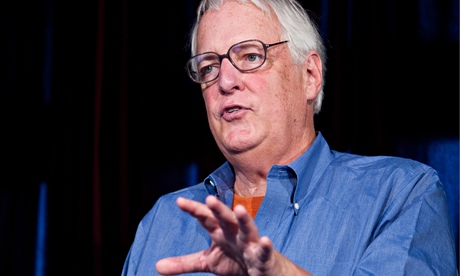
It will be the destiny of Joe McGinniss, who has died of complications arising from prostate cancer at the age of 71, to be remembered for two things. First, for The Selling of the President 1968, his forensic account of the Nixon campaign in that year's presidential election. Second, for Fatal Vision, the true crime book that in turn led him to become the subject for Janet Malcolm's meditation on reporting ethics, The Journalist and the Murderer.
My own memories of McGinniss are rather different. In 1999, I was working at the football magazine FourFourTwo when a sample chapter of a book called The Miracle of Castel di Sangro landed on my desk. I thumbed through it, then noticed the author's name on the cover. I called the publicity department of the publisher and asked: Could this account of one season in the life of a lower-division Italian football team really have been written by the same man who wrote The Selling of the President 1968? Yes, I was told, it could. In that case, could I interview him?
I interviewed Joe, and thus began one of those strange interludes that can happen to journalists. He'd fallen in love with football, to the exclusion of virtually all else, and pursued it with a vigour that was almost frightening in its intensity – he had walked out of the OJ Simpson trial, handing back a huge contract to write a book about it, in order to go to Italy to write The Miracle of Castel di Sangro.
We became email correspondents, chuntering on about football to each other. And when I told him my wife and I were planning to visit New York and Boston early the following year, he invited us to come and stay with him and his wife Nancy at their house in Williamstown, Massachusetts. He picked us up from the railway station in Albany on a snowy day in a grubby old station wagon and drove us to his warm and welcoming home, where it became apparent quite how hard he'd fallen for football.
"Look at this," he exclaimed delightedly, picking up a book that had arrived from Amazon that morning. It was a match-by-match history of derbies between Stoke City and Port Vale. He showed us the fax he was sending to Italy to bid happy birthday to Roberto Baggio, with whom he was infatuated. He invited me to get up in the early hours of the following morning to watch a delayed transmission of an Italy Under-21 match with him (he had a giant satellite dish to enable him to watch as much football as possible).
The thing was, he was so obsessed with football it was almost impossible to get him to talk about anything else. You'd get fleeting mentions – how he was in the hospital room after Bobby Kennedy got shot – then he'd steer the conversation back to the game. And so I'd press to hear about Bret Easton Ellis or Donna Tartt, and how the creative writing course he taught at Benington inspired both Less Than Zero and The Secret History, and instead I'd get an analysis of the misuse of the offside trap.
I didn't know Joe at all well: our email conversations petered out after a couple of years, and those few days in Massachusetts were the only time I ever met him. And I don't think anyone would necessarily call him easy: he delightedly detailed his ruckuses with publishers past and present, castigated Janet Malcolm – who was clearly something of a bête noire to him – and referred to himself only partly mockingly as "the youngest person to top the New York Times bestseller list, apart from Anne Frank". I don't think I'd have wanted to get in a row with him. But I've never forgotten his kindness to me as a young journalist, and his genuine curiosity to pick my brains even while I tried to get to his.
I'm leaving work early tonight, to get the train to Brighton, for a football match I really don't think I'm going to enjoy very much. I think Joe would have approved.

